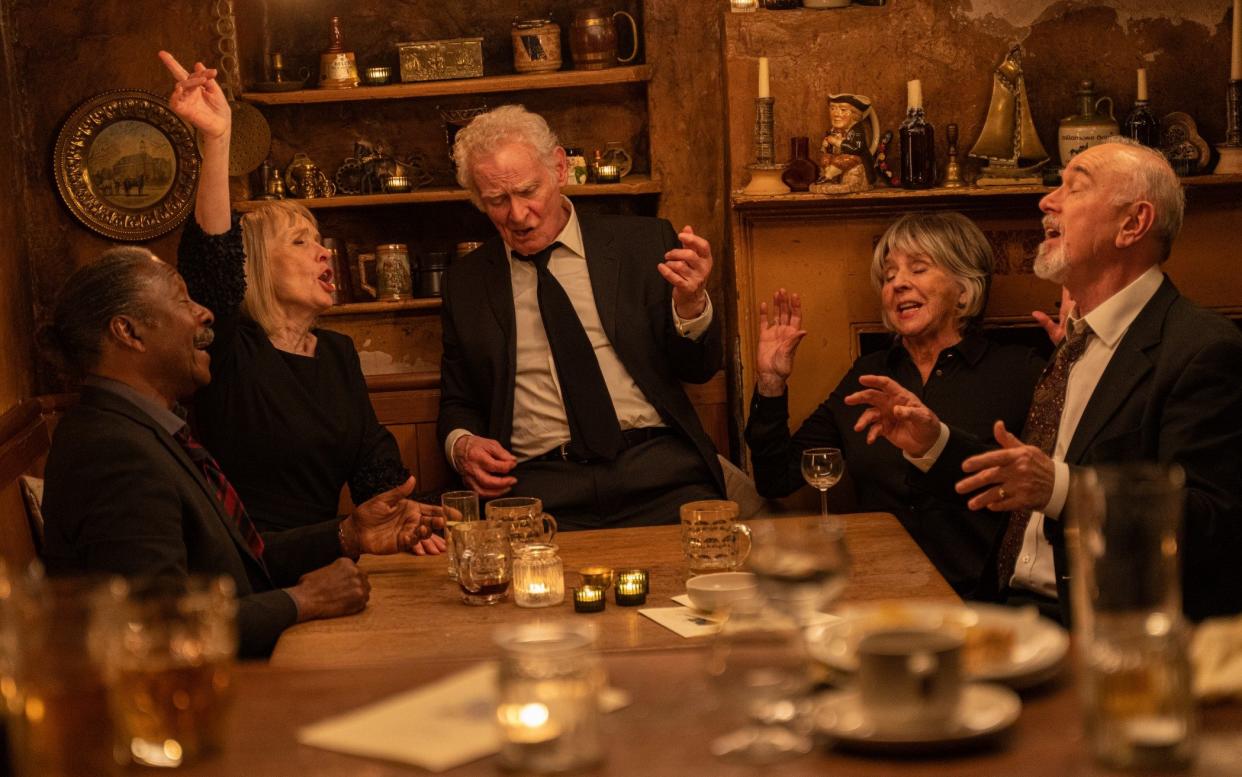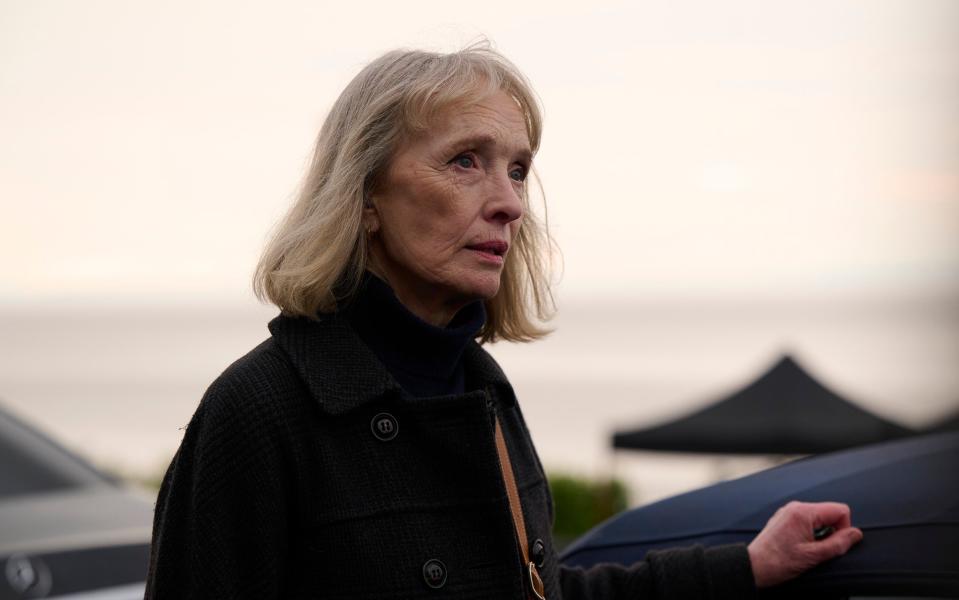Truelove, Channel 4 review: assisted dying drama gleefully skewers old-age clichés

Have you considered moving to a bungalow? In Truelove, a new Channel 4 drama starring a cast with an average age of 75, Lindsay Duncan thinks she knows what that means. “Everyone knows,” she says. “It goes: bungalow, hospice, crematorium.”
Duncan plays Phil, a retired deputy chief constable who isn’t raging against the dying of the light yet because her light shows no signs of dimming. Yes, she studies her lines and wrinkles in the mirror. But she also drives fast in her convertible, looks chic in dark sunglasses, and has ignored the memo about smoking not being cool.
We begin at a funeral, where an old pal has died a lingering death, unable to perform the most basic tasks without carers. “If I get anywhere near that, please take me out the back and shoot me,” Phil says to the old gang, friends of decades standing: Tom (Karl Johnson), Ken (Clarke Peters), David (Peter Egan) and Marion (Sue Johnston). They make a drunken pact to help each other end it all – out of “true love” – if the need arises. And soon it does, when one of them is diagnosed with Stage 4 cancer and the friends keep to that vow.
Gosh, this all sounds gloomy, doesn’t it? But Truelove is rather glorious in parts, despite the subject matter. For starters, it soon develops the structure of a thriller, as a police constable notices something suspicious about the death and begins to investigate. It also does that all-too-rare thing of depicting older people as interesting and complicated and still up for having a damn good time – not, as Johnston recently said, “either lying in bed dying or struggling up the road bent over a walking stick”.

Watch the friends sitting around a pub table, or Phil and Ken on the verge of rekindling their teenage love affair, and you can see the youngsters they once were. They’re the same people, they just got older. The drama (which is from two relatively young writers and producers, Charlie Covell and Iain Weatherby, who say they borrowed aspects from their parents and grandparents) doesn’t shy away from the downsides of old age.
The characters joke about whether cancer, dementia or heart disease will get them first; dreams of a happy retirement are punctured by the reality of a small pension pot; loneliness is a problem, both for those living alone and others trapped in loveless marriages.
There are plenty of witty moments, though, most of them provided by Duncan. Wanting to avoid the attention of the police, she arranges a rendezvous somewhere they won’t stand out: a National Trust property. “Look around us,” she says. “We’re invisible. Nobody sees a pair of pensioners. And that’s our superpower.”


